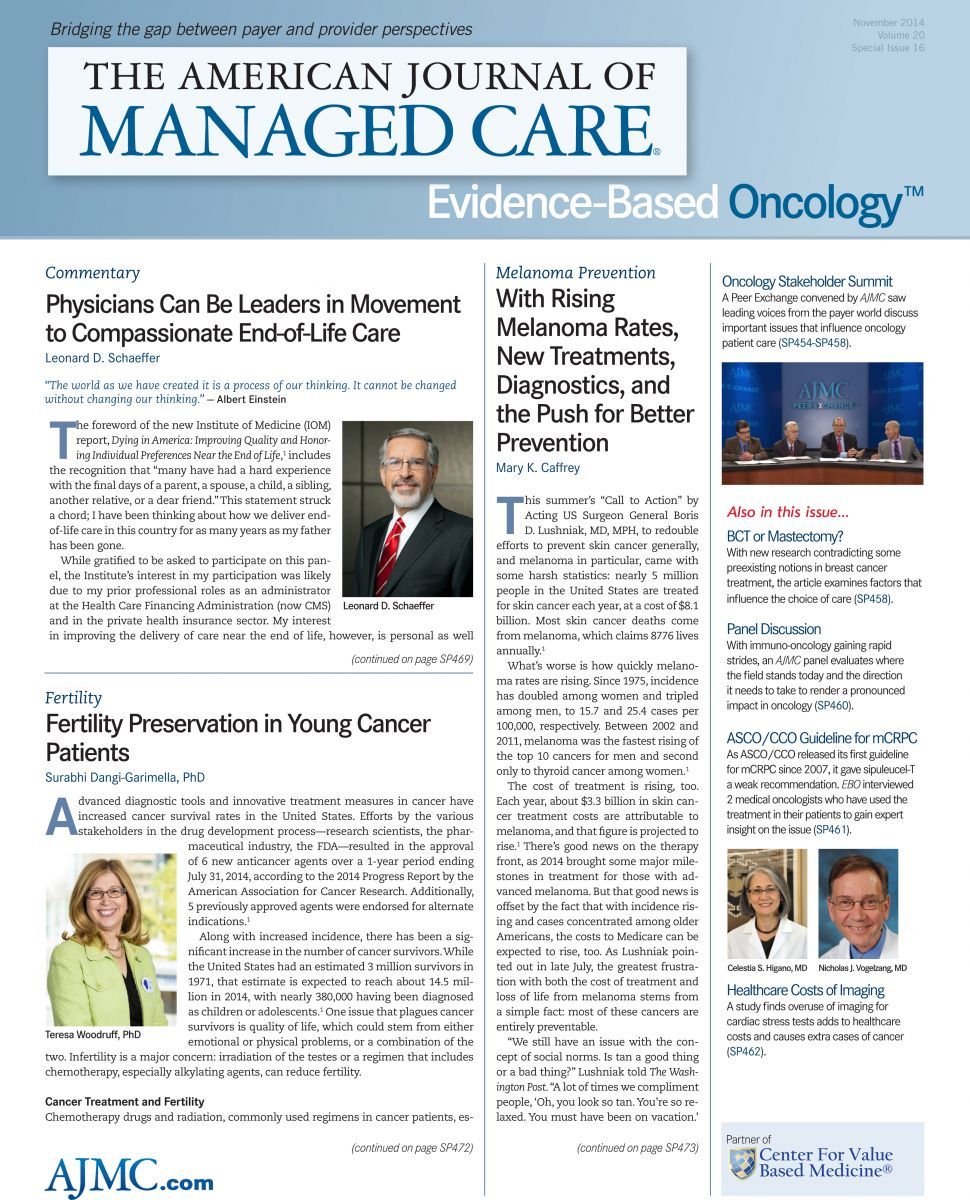- Center on Health Equity & Access
- Clinical
- Health Care Cost
- Health Care Delivery
- Insurance
- Policy
- Technology
- Value-Based Care
Merck's Pembrolizumab: Breakthrough in NSCLC
With the immuno-oncology realm heating up, pharmaceutical companies are in a close race to bring their products to the market. The 2011 approval of ipilimumab (Yervoy, Bristol-Myers Squibb), the first CTLA-4 inhibitor approved for the treatment of advanced melanoma, was followed by a lag in approvals for immunotherapy.
However, at the annual meeting of the American Society of Clinical Oncology, held in May 2014 in Chicago, immuno-oncology took center stage as the big players in the field, Bristol-Myers Squibb, Merck, Roche, and AstraZeneca, presented encouraging data on their PD-1 and PD-L1 inhibitors. While Bristol-Myers Squibb is still the major player, devoting an estimated $649 million to immuno-oncology studies with 78 trials, Merck has an estimated $327 million invested in immune drugs in oncology.1
In early September, the FDA announced the approval of the first PD-1 inhibitor, Merck’s pembrolizumab (Keytruda), for patients with advanced melanoma who had developed resistance to other treatments. Keytruda is recommended for melanoma patients who fail Yervoy and those with a BRAF V600 mutation but resistant to Yervoy and a BRAF inhibitor. Despite being the sixth melanoma treatment to be approved since 2011, FDA’s director of the Office of Hematology and Oncology, Richard Pazdur, MD, said in a statement, “Many of these treatments have different mechanisms of action and bring new options to patients with melanoma.” Keytruda, which received a priority review and a breakthrough designation, was granted accelerated approval following its evaluation in 173 patients with advanced melanoma.2
A month later, Merck announced3 the breakthrough therapy designation for Keytruda for treating patients with epidermal growth factor receptor mutation—negative and anaplastic lymphoma kinase rearrangement–negative non-small cell lung cancer (NSCLC) who present with disease progression after platinum-based chemotherapy. The FDA reviewed the phase 1b results of the KEYNOTE-001 study that is ongoing, and whose updated findings were presented at the European Society for Medical Oncology (ESMO) 2014 Congress held in Spain in September.
The data presented at ESMO were from 262 patients followed for a median 5.4 months. The overall response rate (ORR) in patients with measurable disease was 21% RECIST 1.1; specifically, ORR was 26% in treatment-naïve patients and 20% in previously treated patients. PD-L1 expression was a strong biomarker for response prediction: ORR was 23% in patients with ≥1% PD-L1 staining and 9% in the absence of PD-L1 expression. Progression-free survival (PFS) in treatment-naïve patients was 27 weeks, and the patients had not reached a median overall survival (OS) at the time of data presentation. However, their 6-month OS rate was 86%. In previously treated patients, PFS was 10 weeks, the median OS was 8.2 months, and the 6-month OS rate was 64%.4
Along with phase 2/3 studies in NSCLC, Keytruda, is being evaluated as monotherapy and combination therapy in 30 different cancer subtypes.References
1. Carroll J. ASCO: Big Four immuno-oncology players wager $1.3B on next-gen cancer drugs. FierceBiotech website. http://bit.ly/1B1YYbC. Published May 29, 2014. Accessed October 7, 2014.
2. FDA approves Keytruda for advanced melanoma [press release]. Silver Spring, MD: FDA Newsroom; September 4, 2014. http://1.usa.gov/1qCwIm4.
3. Merck receives FDA breakthrough therapy designation for KEYTRUDA (pembrolizumab) in advanced non-small cell lung cancer [press release]. Whitehouse Station, NJ: Merck; October 27, 2014. http://bit.ly/1u6xptd.
4. ESMO 2014: pembrolizumab shows promise in several solid tumours. ESMO website. http://bit.ly/10Vl92Z. Published September 30, 2014. Accessed October 28, 2014.

Quality of Life: The Pending Outcome in Idiopathic Pulmonary Fibrosis
February 6th 2026Because evidence gaps in idiopathic pulmonary fibrosis research hinder demonstration of antifibrotic therapies’ impact on patient quality of life (QOL), integrating validated health-related QOL measures into trials is urgently needed.
Read More
Exploring Racial, Ethnic Disparities in Cancer Care Prior Authorization Decisions
October 24th 2024On this episode of Managed Care Cast, we're talking with the author of a study published in the October 2024 issue of The American Journal of Managed Care® that explored prior authorization decisions in cancer care by race and ethnicity for commercially insured patients.
Listen
Building Trust: Public Priorities for Health Care AI Labeling
January 27th 2026A Michigan-based deliberative study found strong public support for patient-informed artificial intelligence (AI) labeling in health care, emphasizing transparency, privacy, equity, and safety to build trust.
Read More

